The Toxic Culture at Tesla
The factory floors at America’s top seller of electric vehicles are rife with racial harassment, sexual abuse, and injuries on the job.

The end of 2020 was drawing near, and Andrea Turley, a 36-year-old self-employed hairdresser, had to figure out how to afford gifts not only for her two daughters’ birthdays but also for Christmas. She came up with a solution: a job working on the floor of Tesla’s auto manufacturing facility in Fremont, California. It paid about $20 an hour.
Turley’s grandparents had worked at the same plant when it made cars for General Motors. She knew what working on an assembly line would entail and hoped to stay; her grandparents had worked there for decades. “I don’t have a problem with doing hard labor,” she told me.
“The problem was the sexual harassment. It was the racism,” she said. “It’s the constant disrespect.”
On her second day of training, Turley noticed the phrase “Black bitches need to go home” written on the bathroom walls. Once she started working on the line, she heard her white male lead—the person who supervised her on the floor—use the N-word and other racial slurs like “coon,” according to a legal complaint she filed later. He also frequently used the words “bitch” and “cunt.” He “used just about every awful and offensive word I can think of,” Turley said in the filing. It wasn’t just him; other white coworkers also often used the N-word around her and her fellow Black coworkers. She frequently saw the word “bitch” written on the bathroom walls alongside the N-word and “KKK.”
Turley likes to wear layers, dressing like a “tomboy,” she said. Her lead and another coworker started making comments about her being gay, harassing her for her appearance.
Turley had never experienced anything like it at a workplace before. “Never,” she said. In her filing, she wrote: “Every day that I had to show up to work was difficult for me; it was hard to walk into the factory knowing the treatment that I was going to face.” In late December 2020, she sent Tesla’s human resources department a complaint laying out her lead’s racial and sexual harassment. The company didn’t address the issue, she said.
Instead, Turley continued, after she made the complaint, the men “really started harassing me.” One day when she got angry at them, her lead moved her to a new line assignment, in a place “where he knew I wasn’t tall enough,” she said. At her new station, a car would come down the line and she had only a few minutes to install the floor and seats before the next car would arrive. Turley, who is five feet tall, wasn’t able to reach inside, so she had to climb inside the car. She protested that she couldn’t safely do the work but was ignored. Rushing to install the necessary components, she nearly fell out of the door, catching herself but breaking her wrist in the process.
Turley was sent to the on-site urgent care facility, where, she said, she was given an over-the-counter pain reliever and a hand brace and sent back to the line. Her lead told her that if she didn’t keep doing the same task, he would “fire [her] black ass,” according to her legal complaint.
In February 2021, Turley had finally had enough. With around 10 other women she’d been hired with, she walked out, never to return. “It felt like I was kind of letting my grandmother down,” she recalled. Financially, “it was devastating.” But, she added, “it’s better to have my sanity.”
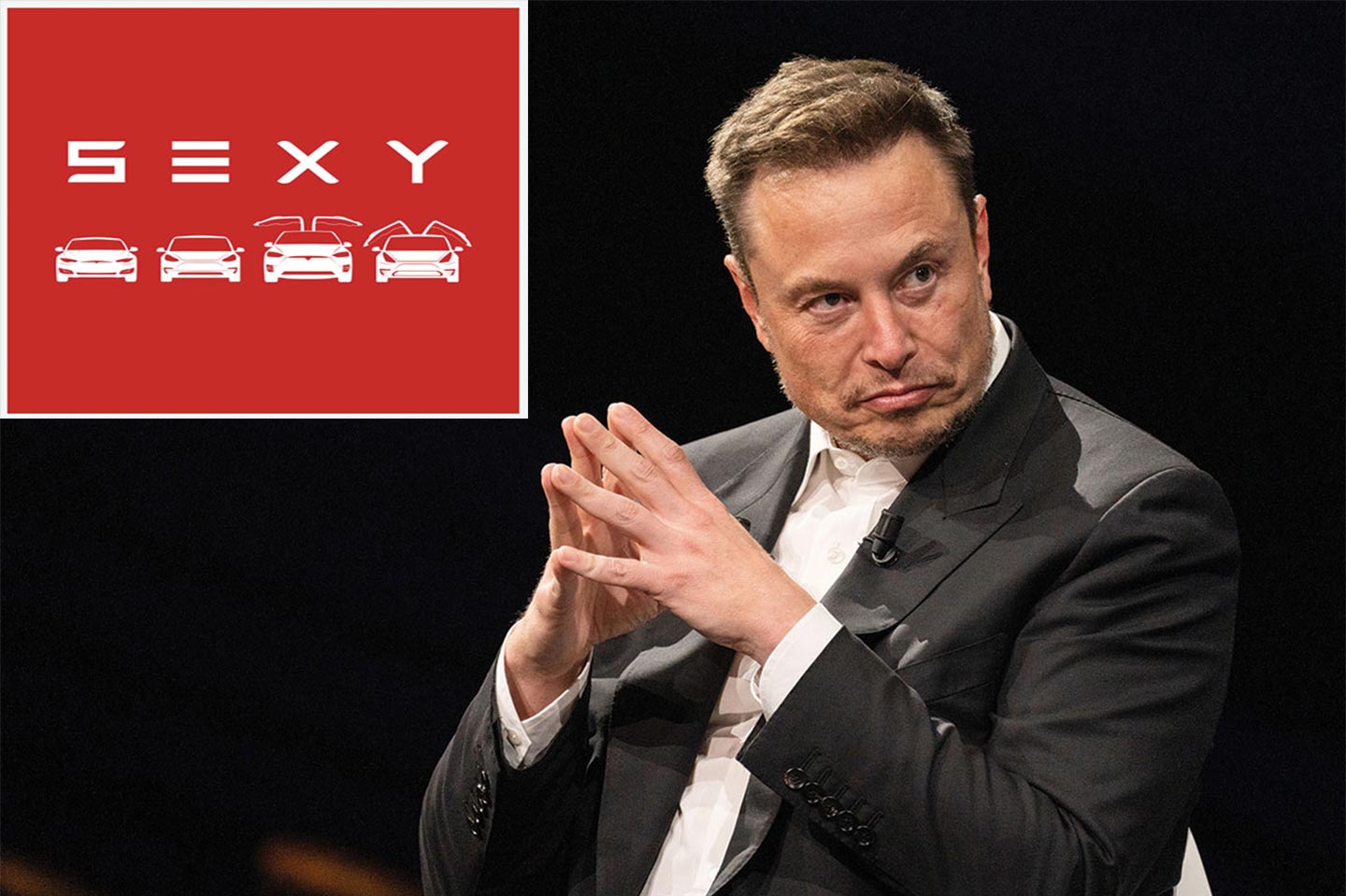
Tesla, by far the country’s top maker of electric vehicles, is riding the wave of EV adoption. Its vehicles and technology offer a way to tackle climate change. Such a cutting-edge company is attractive to plenty of people looking for meaningful work. Not to mention that a position as a production associate, an entry-level factory floor job, currently pays around $25 per hour—less than what unionized autoworkers can expect, though much more than what most service-sector workers make. But a review by The Nation of more than 50 legal documents, government records at the Occupational Safety and Health Administration (OSHA) and the National Labor Relations Board, along with interviews with workers and their lawyers, paints a picture of a company whose factory floors are stuck in another century.
Dozens of Black workers have alleged that racism is not only rampant but tolerated at the company’s factories, from menacing white-power graffiti to Black workers being shunted to the most grueling jobs with no chance of getting a promotion. At least a dozen women have described a work environment thick with sexual innuendo and complain of inappropriate touching and catcalls hurled at them daily. Cars zip down the line at dangerous speeds, workers say, forcing them to piece the cars together at a breakneck pace, made all the more difficult by the insufficient training they are given. Many workers, like Turley, have had to endure all these violations at the same time.
Discrimination and harassment can happen on any factory floor. How a company reacts to it dictates how pervasive and severe the behavior gets and whether employees feel safe. Tesla employees who have complained about these problems say they were either ignored or retaliated against. Many didn’t think it was worth speaking up. It was, after all, many of their supervisors who were casually using the N-word and blatantly ogling women’s butts.
“There’s an atmosphere on the line that allows for mistreatment,” said J. Bernard Alexander III, an attorney at Alexander Morrison + Fehr, who has represented some of the workers at the Fremont plant. When workers feel desperate enough to complain, he continued, “there’s no responsiveness. As long as the line is moving, progress is being made, they can’t care less.”
Such a corporate culture, with its pervasive dehumanization and permissive attitude toward abusive behavior, usually rots from the top, and in the case of Tesla, it’s easy to draw a straight line back up to its CEO, Elon Musk, who himself has been accused of sexual harassment. He named his company’s cars the Models S, 3, X, and Y—that is, “SEXY.” In case the innuendo wasn’t obvious enough, Musk made it explicit: “We just trademarked ‘sexy,’” he once boasted, and the company emblazons “S3XY” on all kinds of merchandise, including on the seat of red satin shorts.
White-collar workers at Tesla have also complained of mistreatment. In 2016, AJ Vandermeyden, a former engineer at Tesla, sued the company for ignoring her complaints of sexual harassment and then passing her over for promotions and paying her less than male coworkers. Seven former employees have accused SpaceX, another Musk-run company, of failing to promote women and of permitting sexual harassment. Another employee, Michelle Dopak, recently sued the company for paying her less than male coworkers, refusing to promote her, and retaliating after she reported that her manager forced her into a quid pro quo sexual relationship.
But racial and sexual harassment seems to be particularly common on Tesla’s factory floor, and Musk has taken an especially hands-on approach there, claiming to have frequently slept overnight at the Fremont factory. In 2018, a former safety expert at Tesla told Reveal that leaders at the factory avoided demarcating dangerous areas with yellow, because Musk doesn’t like the color. “Musk’s name often was invoked to justify shortcuts and shoot down concerns,” Reveal reported. A chief executive who is that deeply involved in the workplace not only must be fully aware of what is happening on the factory floor but also likely sets the tone for what behavior is and isn’t going to be considered acceptable.
Tesla did not respond to multiple requests for comment.
In Tesla’s factories, “it’s survival of the fittest,” Alexander said. The people who can’t survive “the toxic atmosphere,” he added, “are ultimately weeded out.”
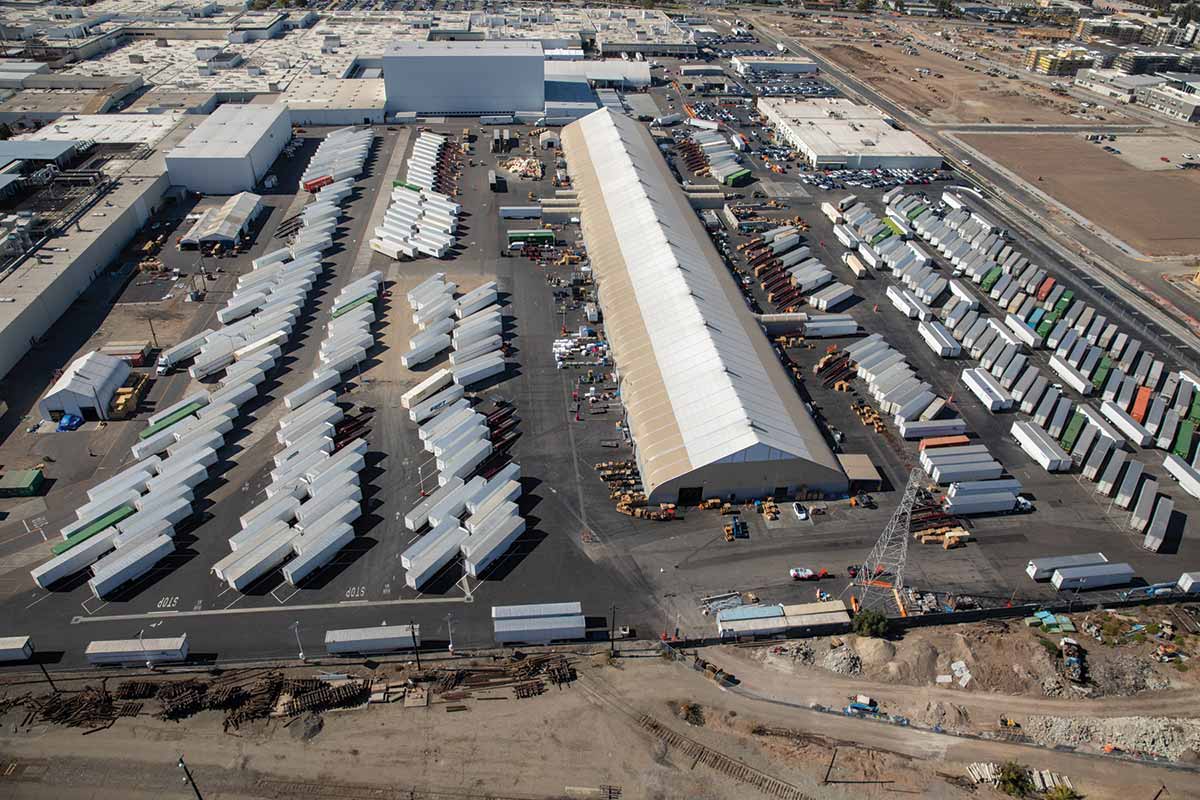
After Jermaine Keys’s twins were born, he needed more than the $15 an hour he was earning at a construction company. So in September 2019, Keys got a job at Tesla’s Fremont factory, which paid about $23 an hour. “It was a big difference,” he told me. At first, Keys enjoyed the job. But a few months in, his supervisor started calling him “boy.” Keys heard white coworkers use the N-word and call people “monkey.” There was a swastika drawn with a black marker near where he clocked in to work every day. Black workers, he said, were made to do things like clean up the work area when the assembly line was slow; white ones weren’t. “It was just hurtful,” Keys said. When he said something to a supervisor, he was told to put his head down so he wouldn’t get fired.
“I wanted to quit,” Keys said. “But I couldn’t quit, because I had to take care of my family.” Instead, he started missing days of work. That meant forgoing income, forcing him to borrow money from his mother. He looked for another job but couldn’t find one that paid as well.
By April 2020, Keys had had enough. He quit because he “could not continue to work in such a degrading, hurtful, and intimidating environment,” he said in a legal filing.
“It was pretty tough,” Keys told me last year. He nearly lost his house. He was still paying his mom back. “I’m still damaged from it.”
In 42 legal complaints reviewed by The Nation, former Tesla Fremont workers repeatedly describe hearing non-Black coworkers, including leads and supervisors, using racist language, sometimes directed at them. Their complaints date as far back as November 2014, when Stephan Winchester, who worked on the factory floor as a production associate, said in a legal filing that he heard the N-word “every day.” It was still happening as recently as December 2022, when Demetrias De Loach, who worked as a material handler and forklift operator at the plant, said he heard the N-word “day in and day out.” Askari Hunt, who worked at the factory until July 2022, said in a legal filing that a non-Black coworker told him, “I fucking hate you, you fucking [N-word] I’ll kill you.” Many of the filings say workers frequently heard “boy” and “monkey” used to refer to Black workers and that Tesla employees called the factory “the plantation” and “the slave ship.”
Crystal English, who had worked at the auto and parts manufacturers ZF Friedrichshafen AG and Ford Motor Company before starting at Tesla’s Fremont factory, said in a legal filing that when she worked at those other companies, “I never heard employees use this kind of language on the job, and the company had made clear that there were serious consequences for any kind of racist behavior.”
Racist graffiti in the factory’s bathrooms, which Winchester saw when he worked there in 2014 and was still a problem when De Loach worked there in 2022, was rarely removed. When it was, more would appear. Cleon Waters, who worked at the factory from September 2016 until June 2019, said he saw drawings of hanging Black men and of nooses on boxes on the factory floor. “It made me feel like I couldn’t trust my co-workers and that I was unsafe as a Black man in the Tesla factory,” Waters said in his legal complaint.
Although Tesla says all new hires get anti-harassment training on the first day of their orientation, a number of workers said they received little to no antidiscrimination or harassment training. English said in her legal complaint that the lack of training “was very different” from her previous experiences; at Friedrichshafen, new employees had been required to attend a “comprehensive” two-day off-site training, and at Ford they had to attend an eight-hour in-person training. “The only communications I remember from Tesla about discrimination and harassment are the emails that Elon Musk has sent to all employees and a three-page document Tesla has called the ‘Anti-Handbook Handbook,’ which only addresses discrimination and harassment by saying to treat others the way you want to be treated,” she stated in her complaint.
In filings with the Securities and Exchange Commission, Tesla says that employees “are encouraged to speak up both in regard to misconduct and safety concerns” through a number of channels. But some workers who experienced harassment never spoke up because they didn’t think anything would be done about it. Of those who reported what was happening, all say the company did not take meaningful action; to their knowledge, employees who used racist language were never disciplined. One worker said that not long after he told his supervisor about the language making him uncomfortable, the same supervisor called him the N-word.
Popular
“swipe left below to view more authors”Swipe →Workers also describe the Fremont factory as being racially segregated. Tesla has erected a tent behind the factory building in which additional production happens; it offers little protection from the cold at night, portable toilets instead of proper bathrooms, and no indoor places to eat. Black workers say that they are more likely than others to be forced to work in the tent. They are also disproportionately assigned the most physically demanding tasks on the factory floor, such as lifting heavy panes of glass and installing bulky car seats. Non-Black workers are more likely to work in electronics, quality assurance, and the office—jobs that can be done while sitting.
Through conversations with coworkers, Turley learned that she and other Black people were paid less than other workers. In his complaint, Winchester said that he worked seven days a week, never called in sick, and performed at the same level as his coworkers. Yet he never received an evaluation from his non-Black supervisors that was high enough to make him eligible for a raise or an increase in a benefit like stocks.
Several workers who filed complaints said that nearly all of the supervisors, leads, and managers were white and that Black people weren’t given the same opportunities to move up as other employees. (As of 2022, Tesla’s workforce was 33 percent white, 28 percent Hispanic, 21 percent Asian, 11 percent Black, and 2 percent Native Hawaiian; in 2020, the leadership was 59 percent white and 4 percent Black.)
Moses Sullivan hoped his experience in accounting and his bachelor’s degree would help him get a job in Tesla’s accounting department. He started working on the factory floor in January 2020 to “get my foot in the door,” he said. Then he was assigned to a tent behind the building. “It was a Jim Crow situation,” Sullivan said. “The Black people, honestly, were in a position to do the grunt work.” He applied for a job related to accounting and was rebuffed. “You want to contribute or be in a position where you can bring your skills in, your knowledge, degrees, your expertise,” he said. Yet no matter how many openings he saw for jobs he was qualified to do, he never moved up.
One day, someone spray-painted a swastika in the parking lot in a conspicuous spot. Sullivan said he never saw anyone at the company ever clean it away or paint it over. “That just made me sick,” he said. “I said, ‘I don’t care how big this company is or what they’re offering, this just does not meet my moral standards.’” He quit that April. In his legal complaint, he wrote that it was “devastating to see an organization so large, so technologically advanced, and so forward-thinking in some ways be so regressive in its practices regarding race and discrimination.”
The filings at the Fremont factory are part of a potential class-action lawsuit charging Tesla with racial discrimination. Last April, a jury ordered the company to pay a former employee, Owen Diaz, $3.2 million after it found that the company had created a hostile work environment by failing to address racism on the job. In addition to these lawsuits, the Equal Employment Opportunity Commission has sued the company for allowing racial harassment at its plant and retaliating against those who complained, as has the California Department of Fair Employment and Housing.
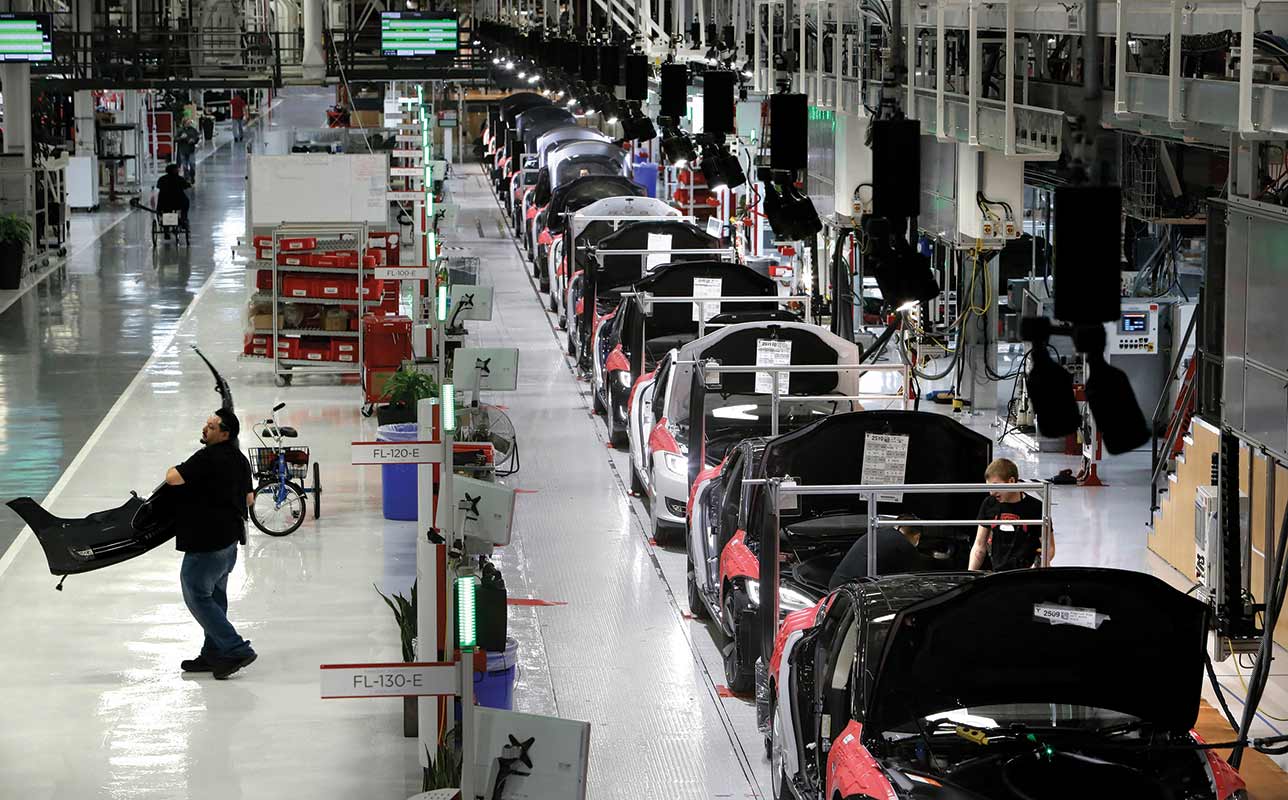
Tyonna Turner was hired to work at the Fremont factory in November 2020. Just 18 at the time, she was “persistently” sexually harassed, she alleges in a legal complaint. She was hit on “approximately 100 times” by her coworkers, who commented on her appearance, invited her over to their homes, made noises at her, and stalked her. Several months in, she decided to complain to her supervisor, who told her, “That’s just how people are.” Starting in January 2022, a coworker began harassing her for months, asking her to come to his apartment, commenting on her clothing and weight, and following her around and staring at her, even after she told him to leave her alone. She finally complained about him to her supervisors in September. She was fired the very same evening, supposedly for not meeting the company’s “integrity standards.”
Turner’s experience was not an isolated one. In 10 legal complaints alleging sexual harassment on the floors of Tesla factories reviewed by The Nation, workers describe an environment in which women, who made up just 21 percent of Tesla’s workforce in 2020 and 17 percent of its leadership, were constantly subjected to sexually charged comments, lascivious stares, and unwanted touching. “Tesla’s factory floor more resembles a crude, archaic construction site or frat house than a cutting-edge company,” according to some of the complaints. Approximately 45 other people have brought cases making similar claims.
Jessica Barrazza needed money to support her two sons, and working at Tesla would provide nearly double the pay she was earning at a boutique. So she took a job at the Fremont factory in October 2018, hoping she might make a career there, according to an interview she gave to Rolling Stone in 2022. But almost every day she heard male coworkers, including supervisors, making comments like “Look at those titties,” “She has a fat ass,” and “Go ahead, sexy” as she walked to and from her workstation, according to a legal filing reviewed by The Nation. Others whistled or stared suggestively. A lead propositioned her by text message, writing: “I just think you sexy asf” and “I always had a crush on yo fine ass.” Coworkers brushed up against her with their groins.
She reported the behavior, but HR didn’t do anything to stop it. Then, in September 2021, according to her complaint, she felt a man put his leg between hers as she was clocking out. That incident led to a panic attack. Barrazza went on medical leave and was ultimately fired.
Jessica Brooks was harassed on her first day of orientation in June 2021; a man called out, “Woohoo, yeah!” as she did squats as part of a warm-up exercise, according to her legal complaint. Once she started the job, the verbal and physical harassment was so constant that she started stacking boxes around her station to discourage men from getting close or ogling her, and she bought flannel shirts to tie around her waist. On Alisa Blickman’s first day at the Fremont factory in March 2021, she saw male workers taking photos of a female worker’s butt, which were then circulated among the other workers. Her supervisor touched and rubbed her lower back every morning, and the harassment didn’t end after she reported it.
Alize Brown, who was the sole provider for her 3-month-old baby when she started working at the factory in November 2020, said in a legal complaint that a male coworker called her a “cow” and said she was “milking” because she was breastfeeding. Michala Curran, who was 18 when she started at Tesla in December 2019—it was her first job out of high school—said in her complaint that a factory supervisor told her she had a “big butt” and tried to slap it within her first weeks. A coworker asked her to give him a hand job in the parking lot.
Many of the women were deeply affected by what they went through. Some described it as traumatizing and nightmarish, and some suffered debilitating anxiety in the aftermath. Most ended up quitting because they couldn’t deal with the abuse or were fired when they refused to return to work.
Workers allege that there was virtually no anti-harassment training. Blickman told Rolling Stone that at her orientation, a man in a “S3XY” T-shirt read off the company’s policies in a monotone and then played a video that mostly contained examples of women harassing men. “I thought, ‘If I’m sexually harassed, they’re not going to care,’” she said. Most women didn’t make complaints, but those who did said little to nothing was ever done.
In its response to some of the sexual harassment lawsuits, Tesla has filed statements from supervisors and coworkers who claim to have never seen or heard sexual harassment and who say they would have reported it if they had. The company attempted to force these cases into private, individual arbitration—it requires every employee to sign an arbitration agreement to work there—but in May 2022 a court denied that move, allowing the women to proceed with their cases.
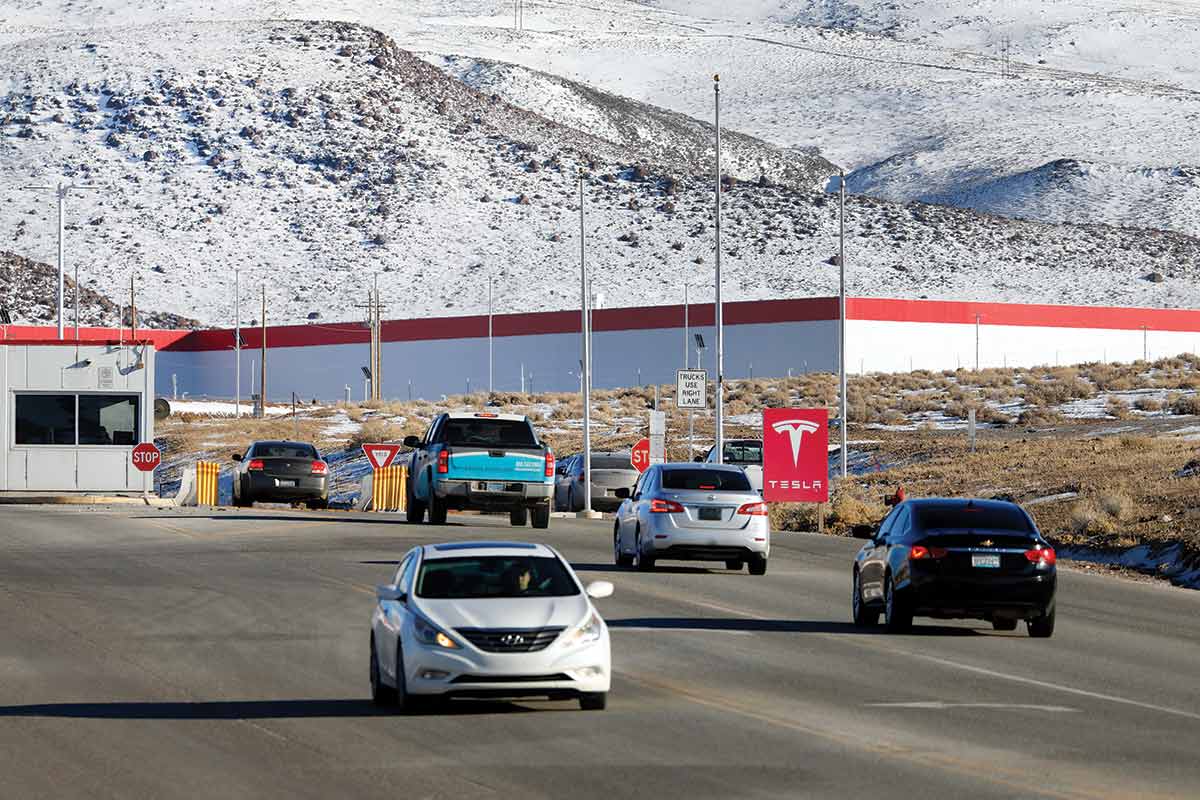
Tesla took over the Fremont factory, its first, in 2010. The site was previously occupied by New United Motor Manufacturing Inc. (NUMMI), a joint venture between General Motors and Toyota. Tesla employed 47,000 people in California as of 2022, and the Fremont plant has produced more than 2 million vehicles. In the years since then, the company has opened other factories in the United States, in Sparks, Nevada; Buffalo, New York; and Austin, Texas. The same pervasively racist and sexist environment seems to have spread to at least one of them. In June 2020, Carlos Hicks started working at the Gigafactory in Sparks, which produces cars and batteries. The job paid well—he made about $22 an hour as an entry-level material handler—and the schedule allowed him to keep going to school. “The work was pretty interesting,” he told me, and he hoped to work his way up in the company. But he immediately began seeing racist graffiti—including swastikas, Confederate flags, and phrases like “Bring slavery back”—scrawled in bathrooms and elevators. He assumed that the graffiti would be painted over and that managers would tell employees to stop. He had worked at other large corporations before—Amazon, FedEx, Walmart. “Usually, those kinds of things are mitigated,” he told me.
But “throughout my entire time there, I’ve never seen any corrective action or maintenance over those writings,” he continued. In a legal filing, he also alleges that Black employees like him were made to work in “unfavorable and unsafe work areas” and that less physically demanding work was given to non-Black workers, just as workers have alleged in Fremont.
Severe sexual harassment has also spread beyond the Fremont factory. Shauna Israel starting working at the Sparks factory in October 2017. In a legal filing, she said that she was subjected to sexual harassment “through almost the entirety of [her] employment.” A coworker repeatedly made sexual comments and put his arms around her, rubbed her arms, shoved her face toward his crotch, and tried to physically stop her from walking away. She “repeatedly complained” to HR, but nothing was done to make it stop, she alleges. In June 2021, the hostile environment drove her to quit.
Hicks also witnessed sexual harassment. In a legal filing, he said that in an internal group-messaging platform used by all employees, including management, an employee wrote, “I need a hug from a cute redhead girl” and “1st floor needs to be heated. My skin is as dry as a lesbian’s tongue.” Only one woman, who had red hair and identified as a lesbian, worked on their team. It made her “uncomfortable,” Hicks told me. But he never saw anyone do anything about it. “That said to me that this behavior is welcome,” he said.
So Hicks complained to HR. “I’m a guy who speaks up about what I see,” he said. “I’m big on doing what’s right.” Plus, he added, every warehouse had a banner telling employees that if they saw something, they should say something.
After Hicks complained, his supervisor “sabotaged” his ability to get promoted, he told me, giving him a “needs improvement” review for offering “feedback” in January 2021 in what Hicks alleges was retaliation. That review blocked his attempts to advance; he eventually resigned. “They were trying to make me not want to work there anymore, and it worked,” he said.
“Tesla’s a popping company. There’s a sense of pride,” Hicks said. But “no one is really asking the questions on what goes into actually producing this product.”
The lack of accountability at Tesla has also resulted in such a severe neglect of safety standards that, workers say, their employer routinely puts them at risk. Paul (who asked to use a pseudonym because he’s involved in a workers’ compensation case against Tesla) started at the Fremont factory in early 2022. He had been working as a mental health counselor, a job he was passionate about, but the pay wasn’t enough for him to put money away in savings. At Tesla, he was assigned to work in the tent attaching subframes to the base of cars, some of the hardest work available, along with other mostly Black coworkers. The workers were pressured to go as fast as possible, Paul said. If he and his coworkers didn’t finish their tasks quickly enough, they were moved to less desirable and more physically taxing tasks or eventually reassigned to another section. “These people are continuously pushing us to get out these cars,” he said. “Of course, you could try to speed up,” but that means “we’re putting ourselves at even more danger.”
Then Paul’s daily discomfort turned to acute pain. His job was to screw in two bolts to secure the subframe to the car, using a torque wrench that hung from the ceiling. He was told to stabilize the wrench with his body, Paul said. This led to a bruise on his lower abdomen; soon, it started to turn into a lump. Shifting the position of the wrench to avoid the pain led to a lump on each side of his body. Tesla sent him home, and during months of confusion about whether or when he was supposed to return, Paul said, the company didn’t pay him. He started to fall behind on his bills, so he took out a personal loan, which he’s still trying to pay off. “I was really depressed,” he said.
Tyonna Turner said in her complaint that she suffered three workplace injuries: a concussion, wrist strain from repetitive motion, and a damaged knee and thigh from when a car backed into her. Albert Blakes, who started working at the Fremont factory in September 2019, said in a legal complaint alleging racial discrimination that he injured his hand “because of the physically demanding work” and, despite repeatedly complaining about the pain to his supervisor, was told to keep working; he eventually had to go on leave. Moses Sullivan told me that cars came down the line so quickly that workers didn’t always clean up tools and debris. “It’s fast,” he said. “You put yourself at risk.”
Health and safety records back up employees’ descriptions of an unsafe workplace. According to a review of OSHA records by The Nation, the agency found 80 violations related to Tesla’s auto manufacturing between January 2019 and February 2024, for which the agency levied a cumulative $525,020 in fines. Companies routinely dispute OSHA fines, and Tesla has succeeded in reducing that total by $53,395. Last December, the company was hit with $38,000 in proposed fines from California’s Division of Occupational Safety and Health, or Cal/OSHA, for four safety violations after an employee was seriously injured by getting stuck in a car.
In June 2019, an employee in Fremont using a pallet jack turned into an eight-foot blind spot created by a shelving unit. He rear-ended a dolly and fractured his tibia, requiring surgery. In November 2021, an employee at the plant fell more than 20 feet from a second-story mezzanine. He fractured his jaw, suffered contusions on his knee and elbow, and broke 13 teeth.
Safety problems have been occurring frequently at Tesla’s factories since at least 2014. Between 2014 and 2018, according to a review by Forbes, Cal/OSHA fined the company a cumulative $236,730 for 54 violations. The violations and fines “dwarfed” those levied by state inspectors against 10 other large auto manufacturing plants, according to Forbes, including ones owned by BMW, Ford, GM, and Nissan, even when taking Tesla’s bigger workforce into account. In 2015 and 2016, Tesla’s injury rate was significantly higher than the average for the industry. The company touted that it had gotten the rate down to the average in 2017, but in 2018 it shot up again.
The employee training the company offers is “woefully inadequate,” Reveal reported in its investigation. Turley told me she was never taught how to do her job and only shown videos that included a history of the plant and information about Tesla, but nothing about the work she would be doing. “You pretty much have to learn from the people that’s in there,” she said. Cleon Waters also said in his filing that he was never given any training for his job assembling parts of car motors. California safety regulators cited Tesla eight times for deficient training between 2013 and 2018.

Auto manufacturing is difficult work, and people get injured at all plants. Such male-dominated workplaces are no strangers to sexual harassment. But other auto giants have rules and processes that keep the injury rates lower and are intended to squash discrimination before it becomes entrenched. One reason for that is the presence of unions: Workers at the Big Three automakers—Ford, GM, and Stellantis, which makes Chryslers and Jeeps—are represented by the United Auto Workers. None of Tesla’s six US factories are unionized. After the UAW’s historic wins last year in its contract negotiations with the Big Three, the union vowed to organize nonunion auto plants in the United States, including Tesla’s.
But it’s been tried before. In the summer of 2016, a group of Tesla employees created an organizing committee in coordination with the UAW to try to unionize the Fremont plant. Richard Ortiz, one of the lead organizers, had worked at NUMMI, a unionized plant, doing the same job he did at Tesla, and was paid “a lot more money” than he made at Tesla, he told More Perfect Union in 2022—$30 to $35 an hour. At Tesla, he said, employees made about $20 an hour, including premium pay. They had to work 12-hour shifts, six days a week. He and other workers were also worried about safety, but when they brought up their concerns, the company “didn’t really” respond. “We’re not disposable,” Ortiz said. “We’re human beings. We matter.”
Tesla launched an aggressive counteroffensive against their organizing. The National Labor Relations Board found that management coercively interrogated Ortiz three times. In a 2017 memo to employees, Musk called the UAW’s organizing tactics “disingenuous or outright false” and promised workers frozen yogurt stations and a roller coaster. Ortiz was fired in October 2017 along with hundreds of other workers—part of an effort, they allege, to replace pro-union employees with temps. Then, in May 2018, Musk tweeted that “voting union” would mean “giv[ing] up stock options.”
The employees, along with the UAW, filed unfair-labor-practice charges against the company with the NLRB, arguing that the actions violated the organizing protections enshrined in the National Labor Relations Act. In March 2023, a panel of the Fifth Circuit Court of Appeals found that Tesla had engaged in illegal anti-union activity and ordered Musk to delete the tweet and the company to offer Ortiz reinstatement and back pay. Tesla then requested an en banc review of the decision, which is still pending. In the meantime, Ortiz still doesn’t have a job at Tesla, and Musk’s tweet is still up.
Other employees have levied charges against the company. The NLRB found merit in two workers’ allegations that the company engaged in illegal union-busting at its Buffalo factory. Tesla also faces open charges of refusing to reinstate at least one employee who went on strike in Nashville, Tennessee; retaliating against a worker who was organizing in Tampa, Florida; and using a variety of anti-union tactics in Austin, Texas.
Since she left Tesla, Turley is back to doing hair, and she’s earning decent money. But the experience has left a mark on her. “It most definitely made my nerves bad and made me aware of my surroundings,” she told me. If she interviews for a job and gets the sense that she might be exposed to a similar environment, she walks away. She’s sworn off working on a factory line or even in a warehouse.
One of Turley’s daughters wanted to work at Tesla recently—the pay is good, after all. Turley told her she couldn’t do it. She swears she would never work there again. “I’ll never go back,” she said. “I even ain’t buying no Tesla.”
Disobey authoritarians, support The Nation
Over the past year you’ve read Nation writers like Elie Mystal, Kaveh Akbar, John Nichols, Joan Walsh, Bryce Covert, Dave Zirin, Jeet Heer, Michael T. Klare, Katha Pollitt, Amy Littlefield, Gregg Gonsalves, and Sasha Abramsky take on the Trump family’s corruption, set the record straight about Robert F. Kennedy Jr.’s catastrophic Make America Healthy Again movement, survey the fallout and human cost of the DOGE wrecking ball, anticipate the Supreme Court’s dangerous antidemocratic rulings, and amplify successful tactics of resistance on the streets and in Congress.
We publish these stories because when members of our communities are being abducted, household debt is climbing, and AI data centers are causing water and electricity shortages, we have a duty as journalists to do all we can to inform the public.
In 2026, our aim is to do more than ever before—but we need your support to make that happen.
Through December 31, a generous donor will match all donations up to $75,000. That means that your contribution will be doubled, dollar for dollar. If we hit the full match, we’ll be starting 2026 with $150,000 to invest in the stories that impact real people’s lives—the kinds of stories that billionaire-owned, corporate-backed outlets aren’t covering.
With your support, our team will publish major stories that the president and his allies won’t want you to read. We’ll cover the emerging military-tech industrial complex and matters of war, peace, and surveillance, as well as the affordability crisis, hunger, housing, healthcare, the environment, attacks on reproductive rights, and much more. At the same time, we’ll imagine alternatives to Trumpian rule and uplift efforts to create a better world, here and now.
While your gift has twice the impact, I’m asking you to support The Nation with a donation today. You’ll empower the journalists, editors, and fact-checkers best equipped to hold this authoritarian administration to account.
I hope you won’t miss this moment—donate to The Nation today.
Onward,
Katrina vanden Heuvel
Editor and publisher, The Nation
More from The Nation
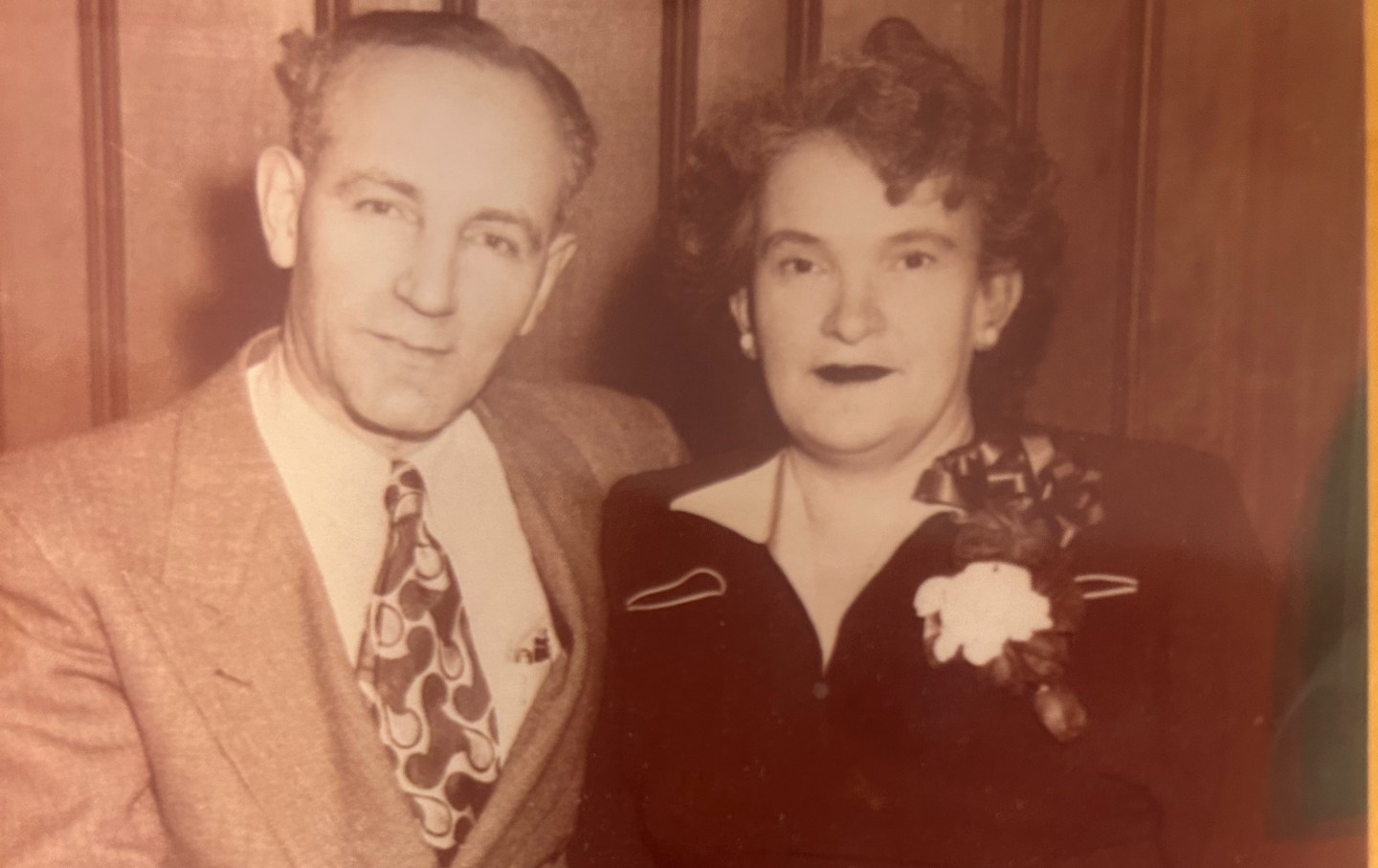
The Supreme Court v. My Mother The Supreme Court v. My Mother
After my mother escaped the Holocaust, she broke the law to save her family. Her immigration story is more pertinent today than ever before.

The Slop of Things to Come The Slop of Things to Come
This past week boasted many overhyped AI breakthroughs, but the healthiest one was the fierce repudiation of a contemptuous McDonald’s ad.

Keeping the Police Out of Pregnancy Care Keeping the Police Out of Pregnancy Care
We must be vigilant in keeping law enforcement out of exam rooms.
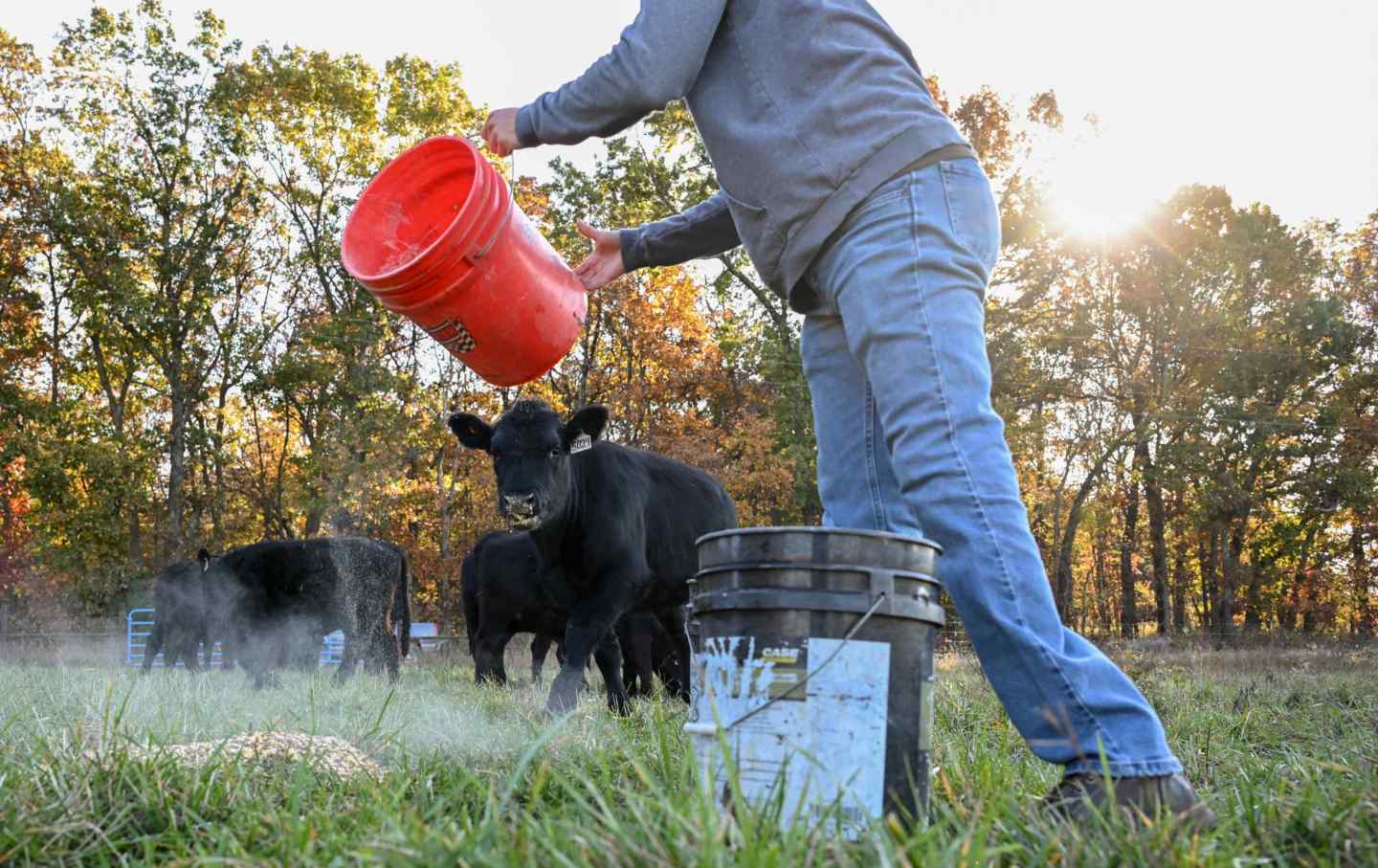
White Farmers Are Getting a Taste of Their Own Medicine White Farmers Are Getting a Taste of Their Own Medicine
Trump’s tariffs and immigration raids are driving the latest farm crisis. White farmers have stood by him year after year—and still do.
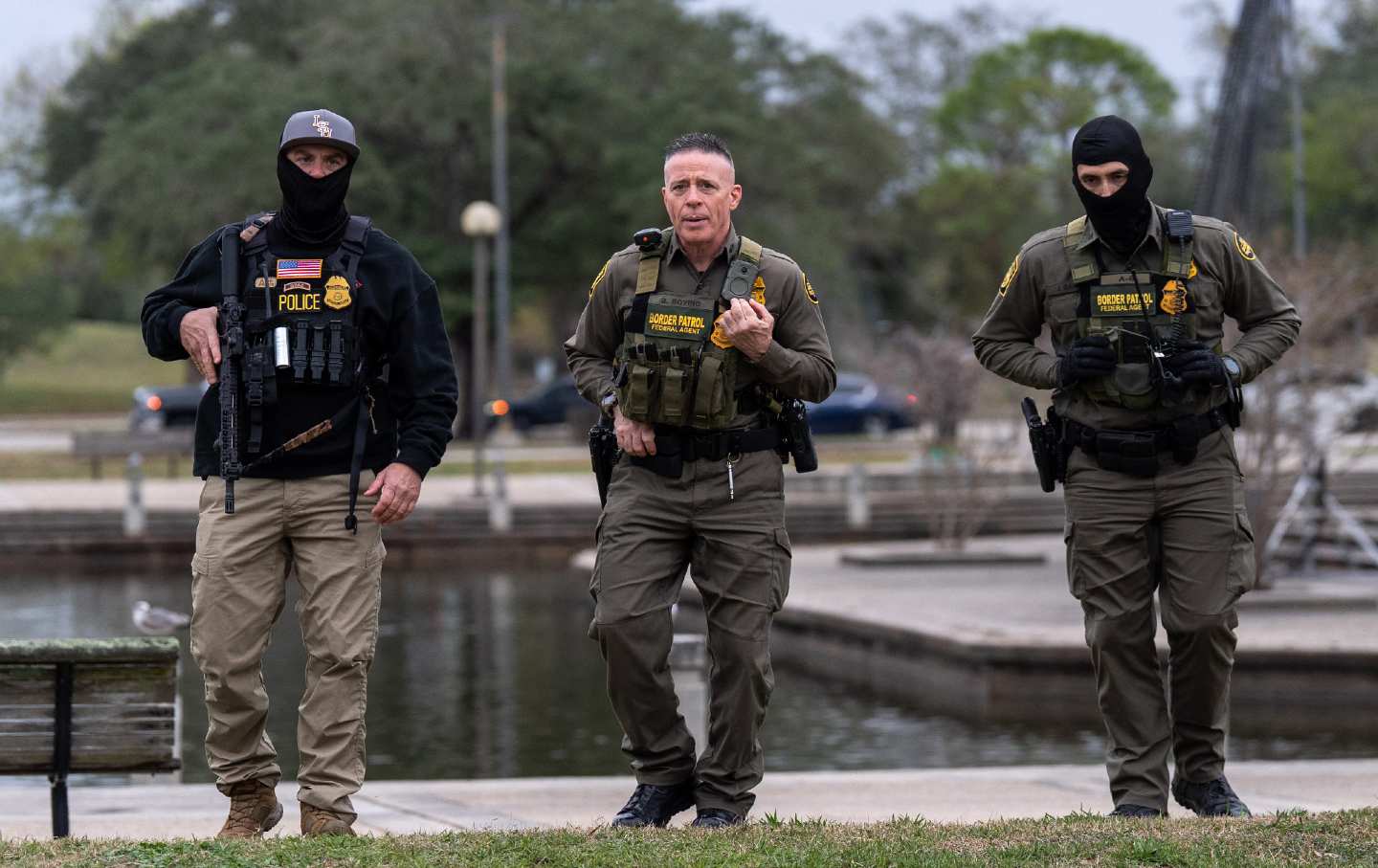
The Stagecraft Behind the New Orleans Immigration Raids The Stagecraft Behind the New Orleans Immigration Raids
In a text exchange, Border Patrol Commander Gregory Bovino calls his operation a “massive disturbance” in the making.
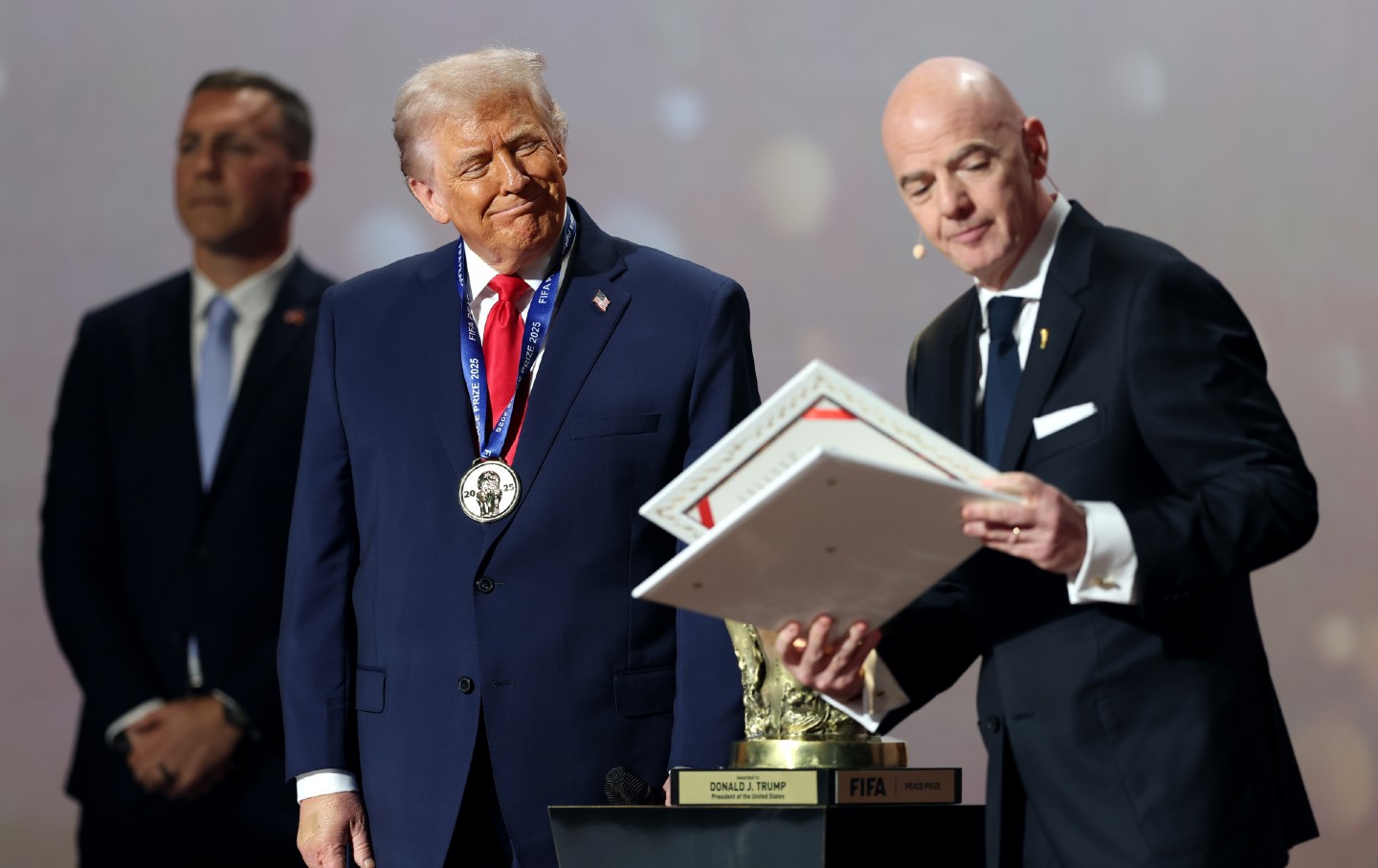
“This Is Historic”: FIFA and UEFA Presidents Are Accused of Aiding Israel’s War Crimes “This Is Historic”: FIFA and UEFA Presidents Are Accused of Aiding Israel’s War Crimes
A coming filing with the ICC accuses FIFA’s Gianni Infantino and UEFA’s Aleksander Čeferin of crimes against humanity for their financial support of settlement clubs.


